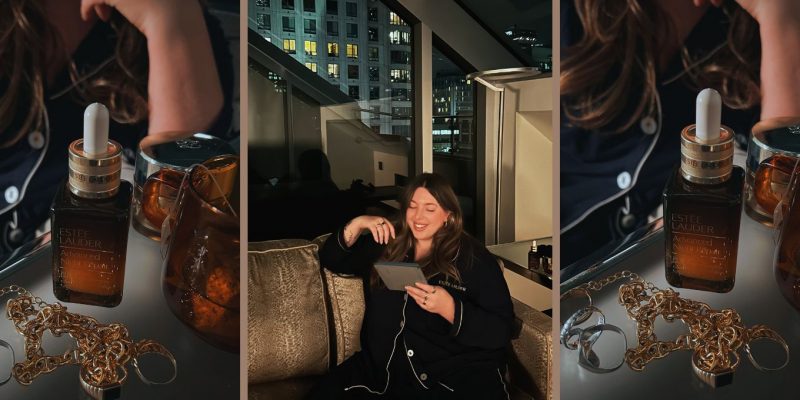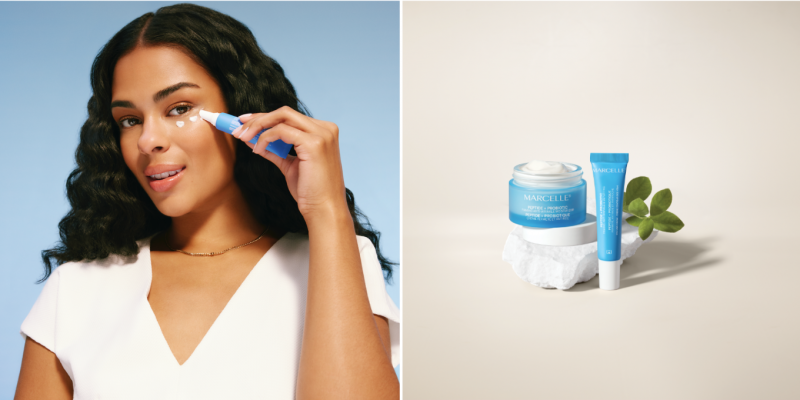Beauty
Power of peptides
Peptides are the latest star ingredient to join the anti-aging arsenal. Find out what all the fuss is about.
by : Jill Dunn- Jun 1st, 2005

For years, women have used retinol, vitamin C and collagen-based creams to ward off the signs of aging. However, peptide-based products are the latest beauty breakthrough to promise to slow down the clock.
Peptide 101
Amino acids are the basic elements of protein. Added up, they form a peptide. Several peptides together form a protein. “Peptides act as messengers to stimulate collagen production,” says Dr. Daniel Maes, global vice-president of research and development with Estée Lauder. When the natural collagen production is stimulated, the wrinkle is lifted and appears less visible. Lauder’s Perfectionist CP with Poly-Collagen Peptides Correcting Serum couples collagen fragments and hexapeptides with Cell Vector Technology to speed delivery of peptides to the cells. “It’s a safe technology because it duplicates the skin’s natural repair mechanism,” says Maes.
Pep up
As we age, collagen production slows and we develop lines and wrinkles because the skin’s support structure is weakened. When collagen breakdown occurs in younger skin, cells work to repair that damage immediately. “Peptide ‘false alarm’ technology signifies to the cells that it’s time to produce collagen, even if there is no damage. It increases the repair activity of the fibroblasts, which are the cells that make collagen,” Maes explains.
Line eraser
If you’re experiencing signs of sun-induced aging, peptides can help. “Peptides are more repair than preventative,” says Maes. “I typically recommend starting to use these products at around age 30, but if you’ve been negligent about applying daily sunscreen, start earlier to repair that damage.” Peptides target both intrinsic and extrinsic signs of aging. Loss of collagen production is caused by two factors, according to Maes: UV light and environmental damage and the slowed production of collagen over time. “Peptides work on both of these at the same time,” says Maes.Right stuff
Peptide molecules are small enough to penetrate the top layer of the skin to target collagen-producing cells. “These are better than topical collagen and elastin creams because those molecules are too big to penetrate the skin,” says Maes. Virtually every skin type and colour can tolerate peptides because they’re found naturally in the body. “Compared to retinol-based products, they cause little or no irritation,” says Maes. “Nor do they cause any sun sensitivity.”
Star power
Many dermatological brands, such as B. Kamins and Dr. Brandt, employ peptide technology. But, increasingly, mainstream brands are realizing its potential. The Olay Regenerist line contains an exclusive amino-peptide complex that exfoliates the skin’s outer layer, revealing newer skin, while Clinique’s Repairwear Deep Wrinkle Concentrate for Face and Eye employs a “bottom-up” strategy that uses peptides to send collagen-bearing cells to the base of wrinkles, reducing their appearance.
Better than Botox?
Some credit the “better than Botox” StriVectin ads as the origin of the peptide boom. But Maes hesitates to make the comparison. “Botox is a toxin that is injected into the muscle so that it’s immobilized,” says Maes. “Peptides are not toxic; they are not going to make your face look frozen.”
Newsletter
Join our mailing list for the latest and biggest in fashion trends, beauty, culture and celebrity.
More from Beauty
Read Next

Fashion
Zendaya Welcomes Spring in a Retro Floral and Tulle Dress
Another day, another preppy tennis-core look.
by : Briannah Rivera- Apr 23rd, 2024

Culture
A Joe Alwyn Source Explains Why He Didn’t Want to Talk About Dating Taylor Swift
Following the release of The Tortured Poets Department, new insight about the British actor’s decision emerges.
by : Alyssa Bailey- Apr 23rd, 2024

Beauty
Tested and Approved: A Skin Saviour That Works While You Sleep
Wake up with your glowiest skin yet—even if you didn’t clock eight hours.
by : ELLE Canada- Apr 11th, 2024




